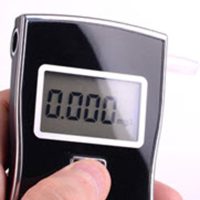The Timing Of The At Fault Driver’s Blood Test Could Affect The Outcome Of Your DUI Accident Lawsuit

In the summer of 2021, Nicolas Williams of Anderson died at the age of 47 when Zane Lewis, 20, suddenly swerved his truck into the lane of traffic where Williams was driving and collided with Williams’s vehicle. When Lewis arrived at the hospital by airlift, the doctors tested his blood alcohol content (BAC), and it was 0.159 percent, which is nearly twice the legal limit of 0.08 percent. Williams’s wife Sonika Williams filed a wrongful death lawsuit against Lewis, alleging that, if Lewis had not been under the influence of alcohol, the accident would not have happened. Lewis argues that he only struck Williams’s vehicle because he was trying to avoid colliding with another vehicle that made an unexpected move and that alcohol had nothing to do with it. This lawsuit would be much more straightforward if the blood sample had been ordered by police at the scene of the accident or at the police station; if someone’s BAC were 0.159 at a traffic stop, the person could be convicted of DUI, making a civil lawsuit arising from the accident a slam dunk for the plaintiff. In car accident lawsuits, every detail matters, and a Columbia car accident lawyer can help you gather and present all the relevant details that will help you recover damages for your accident-related financial losses.
Hospital Blood Tests Are for Making Medical Decisions, Not for Providing Evidence in Court
Even though all blood tests that measure blood alcohol content (BAC) work in generally the same way, there is a big difference between BAC blood tests from hospitals, as opposed to BAC blood tests from forensics labs, as evidence in court, whether in criminal cases involving charges of DUI or in personal injury or wrongful death cases where victims or their families seek damages in civil court for the negligent actions of drunk drivers.
During and after a session of drinking, a person’s BAC changes quickly in the subsequent hours. The body can metabolize the alcohol in approximately one alcoholic beverage (such as a standard sized can of beer, glass of wine, or shot of liquor) per hour. Therefore, if you drank four beers at a party, it is much more dangerous to drive one hour after your last drink than four hours after your last drink.
Meanwhile, if you cause a car accident after drinking, a BAC test in the form of a breathalyzer or blood draw immediately after police arrive at the scene can accurately reflect your BAC at the time of the accident. If the BAC test occurs after you arrive at the hospital, at least some time will have passed between the accident and the test. Furthermore, forensic BAC tests give more exact values than hospital ones. Hospital staff test patients’ BAC to see whether the patients need treatment for acute alcohol poisoning or whether there is a risk of alcohol interacting with other medications. They are not trying to determine whether the patient is sober enough to drive.
Let Us Help You Today
The personal injury lawyers at the Stanley Law Group can help you if you suffered serious injuries in an accident where alcohol was a contributing factor. Contact The Stanley Law Group in Columbia, South Carolina or call (803)799-4700 for a free initial consultation.
Source:
independentmail.com/story/news/local/2022/03/30/anderson-south-carolina-deadly-wreck-reed-lawsuit-nicolas-williams/8733859002/
